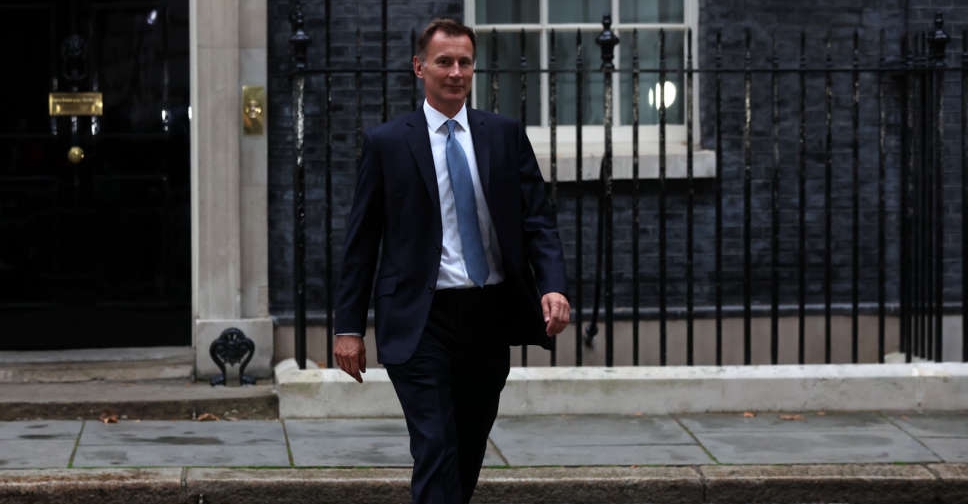
Some taxes would go up, and government spending would rise by less than previously planned as he warned of difficult decisions ahead to restore Britain's economic policy credibility.
Britain's new finance minister Jeremy Hunt said on Saturday, signalling another abrupt policy U-turn by Prime Minister Liz Truss, who is battling to save her leadership just over a month into her term.
In an attempt to appease financial markets that have been in turmoil for three weeks, Truss fired Kwasi Kwarteng as her chancellor of the exchequer on Friday and scrapped parts of their controversial economic package.
In a hurried news conference shortly after dismissing Kwarteng, Truss said the corporation tax rate would increase, abandoning her plan to keep it at current levels, and government spending would rise by less than previously planned.
Big, unfunded tax cuts were a central plank of Truss's original plans, but Hunt said tax increases were on the cards.
"We will have some very difficult decisions ahead," he told Sky News.
"The thing that people want, the markets want, the country needs now, is stability," Hunt said. "No chancellor can control the markets. But what I can do is show that we can pay for our tax and spending plans, and that is going to need some very difficult decisions on both spending and tax."
Hunt is due to announce the government's medium-term budget plans on October 31, a key test of its ability to show investors that it can restore its economic policy credibility.
He said spending would not rise by as much as people would like, and all government departments were going to have to find more efficiencies than they were planning.
"Some taxes will not be cut as quickly as people want, and some taxes will go up. So it's going to be difficult," he said.
Kwarteng's September 23 fiscal statement prompted a backlash in financial markets that was so ferocious that the Bank of England had to intervene to prevent pension funds from being caught up in the chaos as borrowing costs surged.
Hunt said he agreed with Truss's fundamental approach of seeking to spark economic growth, but the way she and Kwarteng went about it had not worked.
"There were mistakes. It was a mistake when we're going to be asking for difficult decisions across the board on tax and spending to cut the rate of tax paid by the very wealthiest," he said.
"It was a mistake to fly blind and to do these forecasts without giving people the confidence of the Office of Budget Responsibility saying that the sums add up. The Prime Minister has recognised that, that's why I'm here."
Truss was due to spend the weekend trying to shore up her flagging support within the Conservative Party, with newspapers quoting lawmakers who questioned her ability to stay in the job.
On Monday, the British government bond market faces a test when it will function for the first time without the emergency buying support provided by the BoE since Sept. 28. Gilt prices fell sharply late on Friday after Truss's news conference.




 Nasdaq set to confirm bear market as Trump tariffs trigger recession fears
Nasdaq set to confirm bear market as Trump tariffs trigger recession fears
 Dana Gas and Crescent Petroleum exceed 500M boe in Khor Mor field
Dana Gas and Crescent Petroleum exceed 500M boe in Khor Mor field
 China to impose tariffs of 34% on all US goods
China to impose tariffs of 34% on all US goods
 Shares bruised, dollar crumbles as Trump tariffs stir recession fears
Shares bruised, dollar crumbles as Trump tariffs stir recession fears
 Wall Street futures sink as tariffs fuel recession fears
Wall Street futures sink as tariffs fuel recession fears



